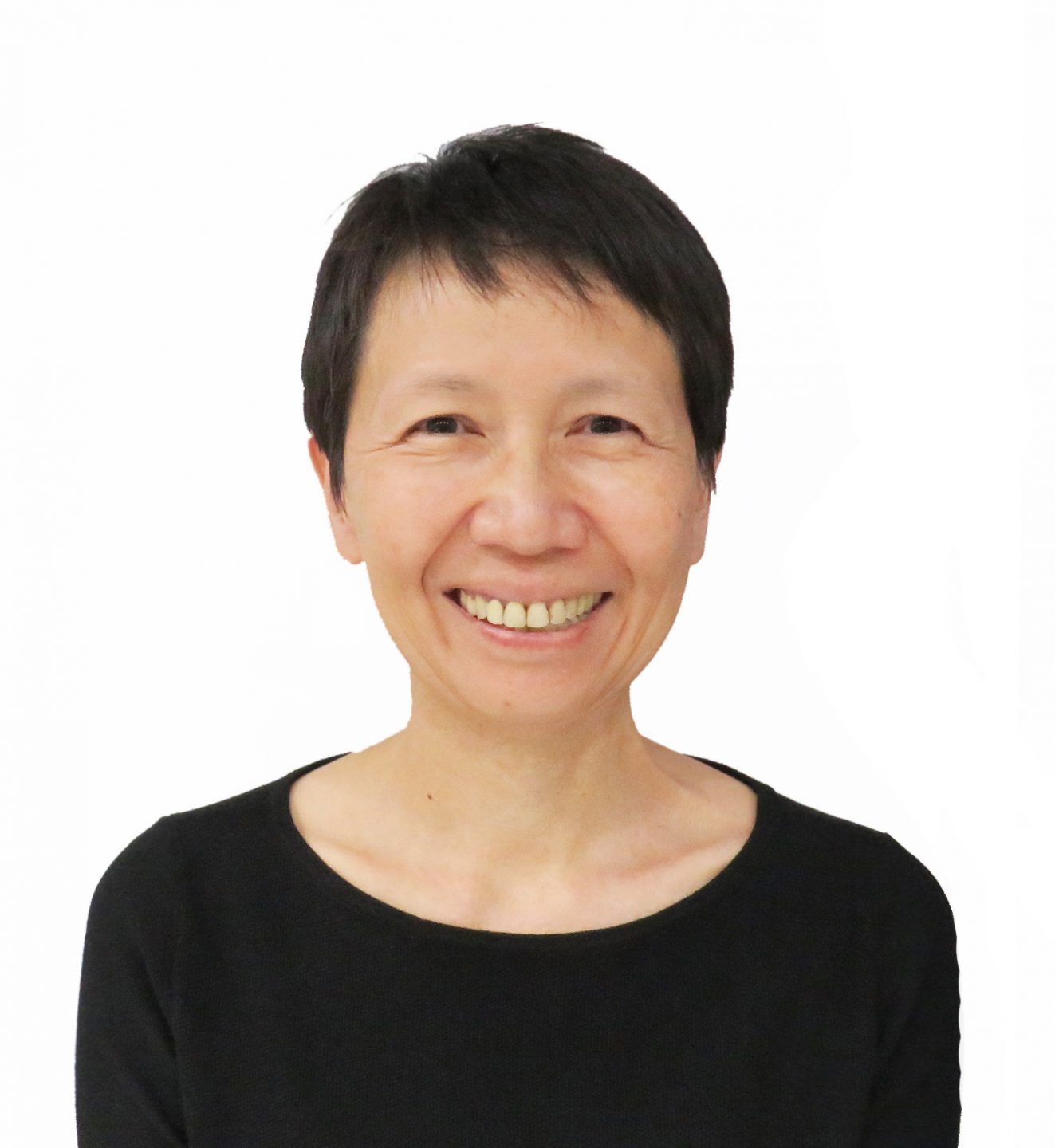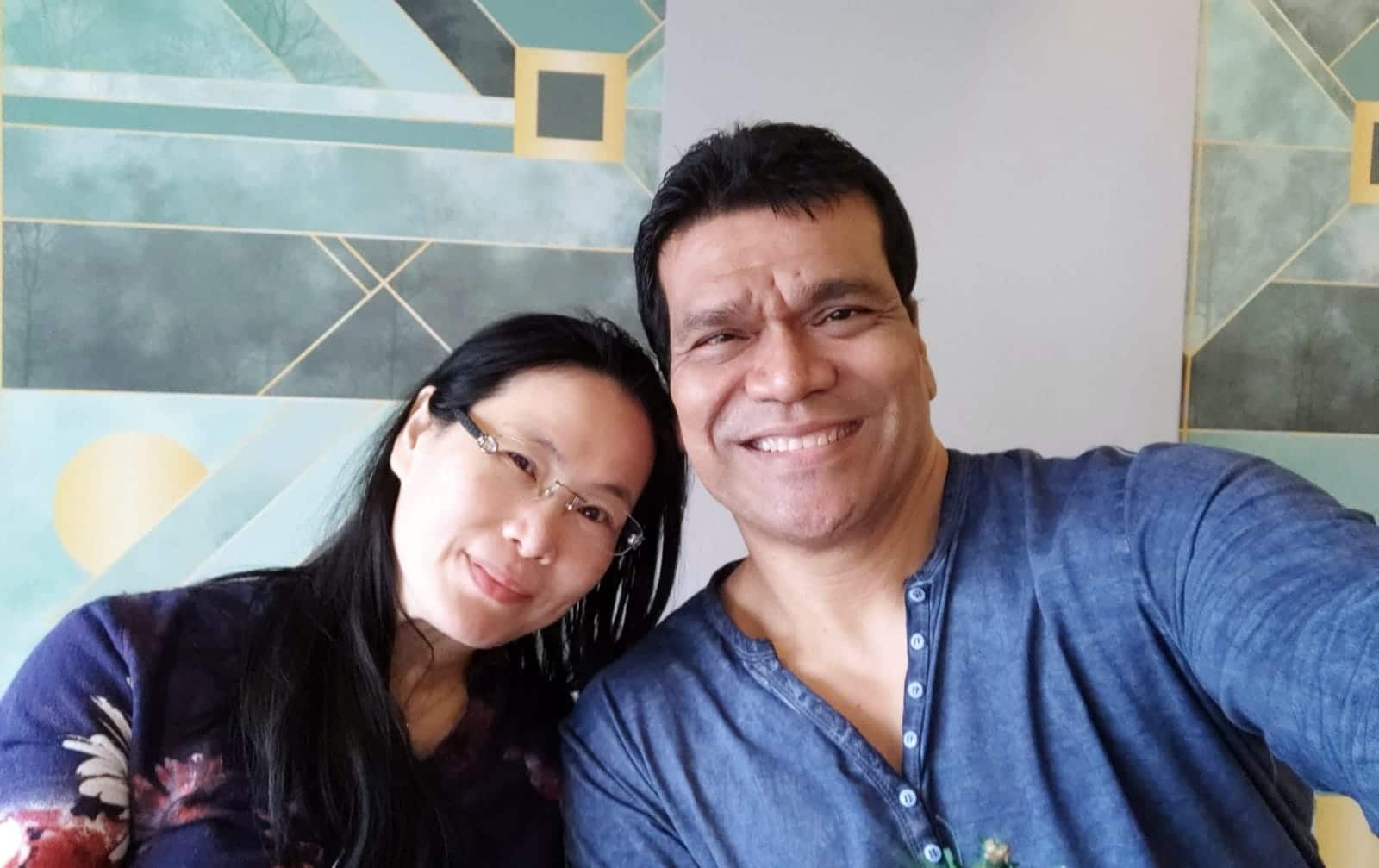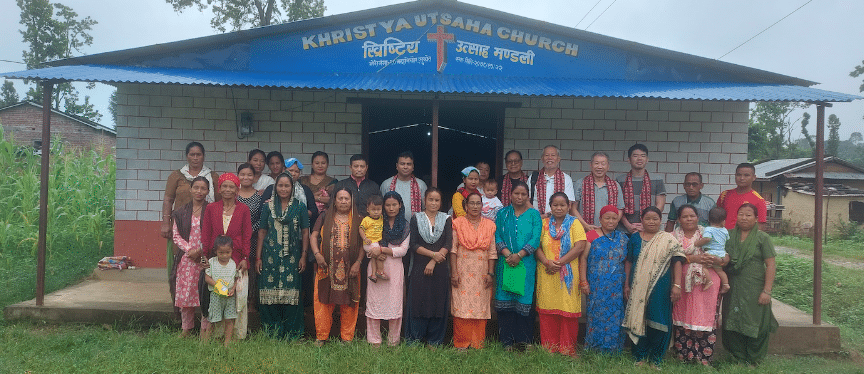“Make use of the passport. Take the Gospel to many places”: Dr Tan Lai Yong on Singapore’s “most powerful” passport
Emilyn Tan // August 8, 2024, 4:43 pm
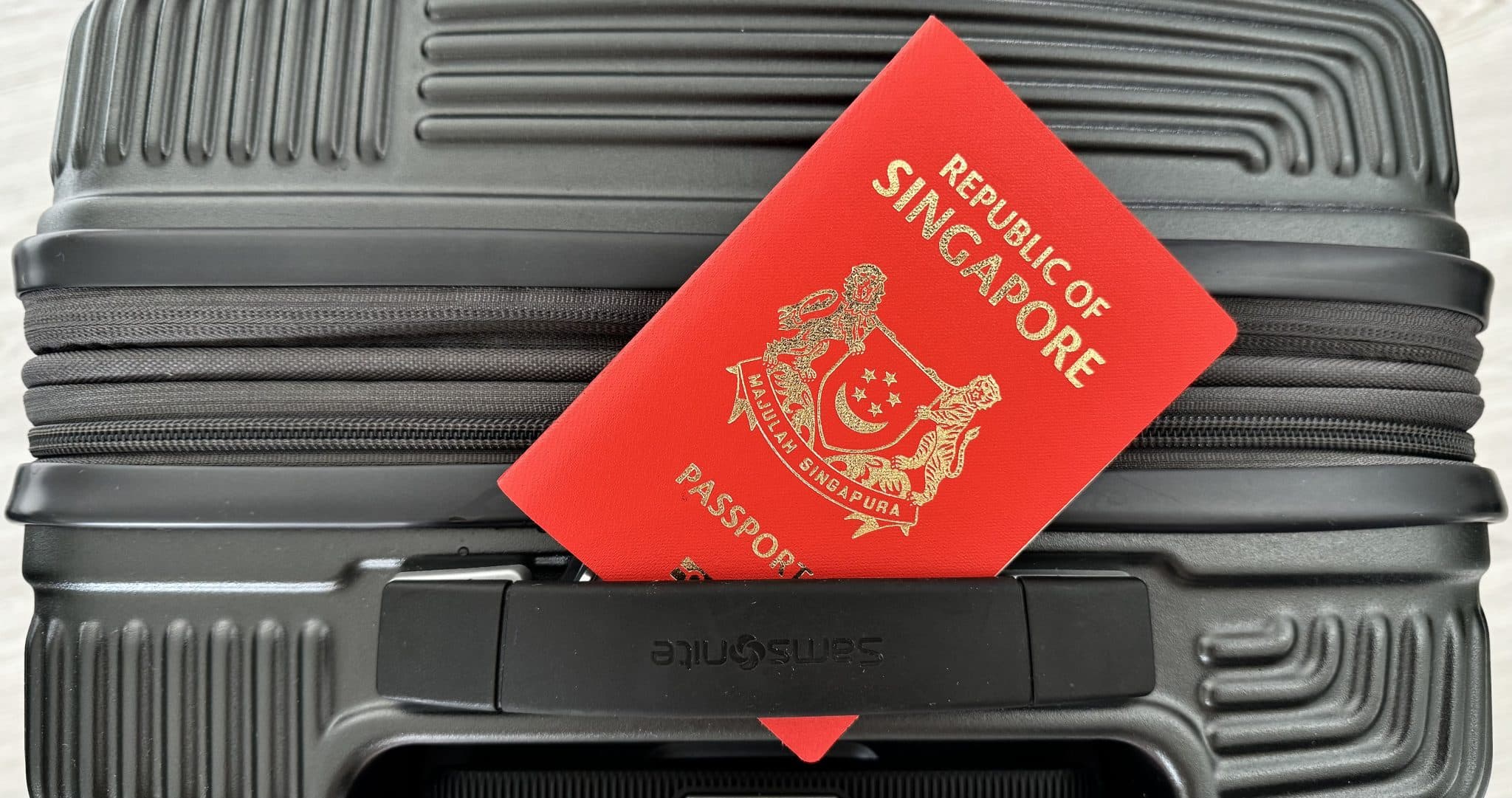
Singapore's red passport is now the "most powerful" passport in the world, according to the latest Henley & Partners research. We can do more with this news than travel for leisure; we can travel for the Gospel, says Dr Tan Lai Yong. Photo by Salt&Light.
Just ahead of our nation’s 59th birthday, it was recently reported that Singapore has “trumped” the likes of France, Germany, Italy, Japan and Spain to come up tops in the Henley Passport Index.
Our red passport is the only one in the world that grants visa-free entry to 195 out of 227 travel destinations, according to Henley & Partners’ research team.
Dr Tan Lai Yong’s nod to this ranking might simply be: “It may not last, you know.”
And he would be well-meaning in saying so.
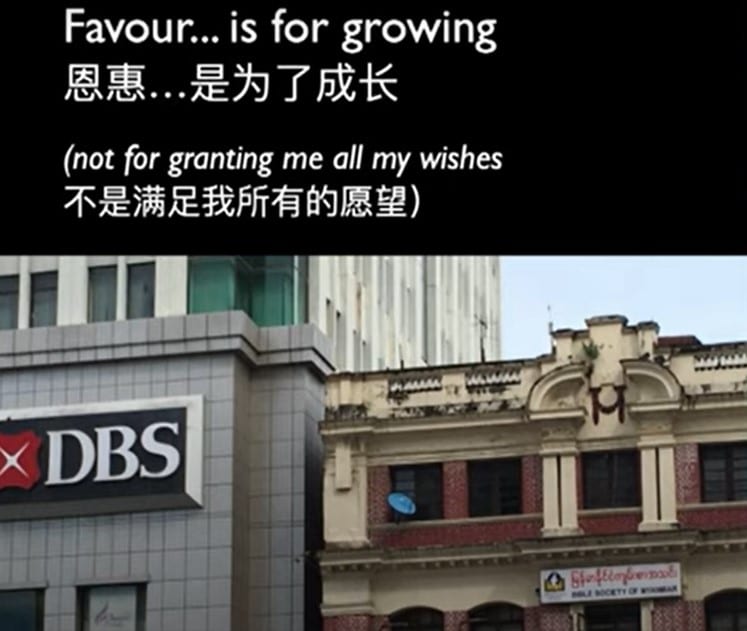
Myanmar was a different country in the early 2010s. Screengrab from Paya Lebar Methodist Church sermon library.
Speaking at the services marking Paya Lebar Methodist Church’s 92nd anniversary last month (July 14), this “wandering saint” of a missionary doctor showed a photo of adjoining buildings he had taken in Myanmar around 2010 or 2011.
“God’s favour has been on us as a nation. Make use of the passport.”
The taller building on the left appeared to be a DBS branch. Its neighbour bore a sign declaring itself the Bible Society of Myanmar.
“I took this picture in Yangon 12 years ago. At that time I told every young missionary and every young person, ‘If I were you, I would stop your career now and go into Yangon right now. Whatever (field) you are in – education, missions, business – go now, because we do not know how long it will stay open.
“I am not a politician, but I think Myanmar has been sold an idea of democracy that they could not live up to.”
What remained unsaid spoke volumes.
In keeping with his sermon title, “Living, Growing and Serving Because of God’s Favour“, he went on gently but pointedly: “God’s favour has been on us as a nation. Make use of the passport. Bring the Gospel, God’s love, to many places.”
Walking the talk
Tan’s own life has pivoted around this principle. His 14 years of service in the remote villages of Yunnan, China, among the needy poor did not end with his return to Singapore in 2010.
Making light of it, he described the VIP treatment he was accorded there as being “dangerous for my soul”.
Yet the accolades – including an award presented to him by former Chinese Premier Wen Jiabao – testified to the increase in stature that had come with his selfless work among the marginalised.
Following his recent season with the NUS College of Alice and Peter Tan as its Director for Outreach and Community Engagement, Lai Yong – who will be 63 this September – has begun working among the people living in Sulawesi and other Indonesian islands.
Put the mission down to the vision of growing deep roots. Indeed, his journeys include tree-planting in the “very dry” island of Pulau Sumba.
“The wise farmer always told me, ‘Plant trees with deep roots.’ ”
“It’s God’s favour that we are born and living here in Singapore, which is so green. We want to bring this part of Singapore life over and plant trees with the young people there too.”
Drawing from experience, he shared: “When living in China, I lived in an orchard. The wise farmer always told me, ‘Plant trees with deep roots.’”
He segued into Scripture: “‘And Jesus grew in wisdom and stature, and in favour with God and man’ – that is deep roots.
“As parents, as grandparents, as employers, as teachers, grow deep roots,” he urged. “Nurture our young such that they grow deep roots.”
His unspoken point: We will surely need them in the days to come as the winds of change blow.
“In this verse, the word ‘favour’ is from the Greek word charis. ‘Favour’ is not good luck. ‘Favour’ doesn’t mean everything you do is good. ‘Favour’ means God rests on you.
“God gives us the favour to do work. God gives us the favour of His Word. Bring God’s Word into your workplace in humble ways.
“You do not know how long the opportunities will remain open.”
Discipleship revised
Listing four Bible verses in which “favour” is mentioned, Lai Yong laid out a four-pronged pattern of discipleship:
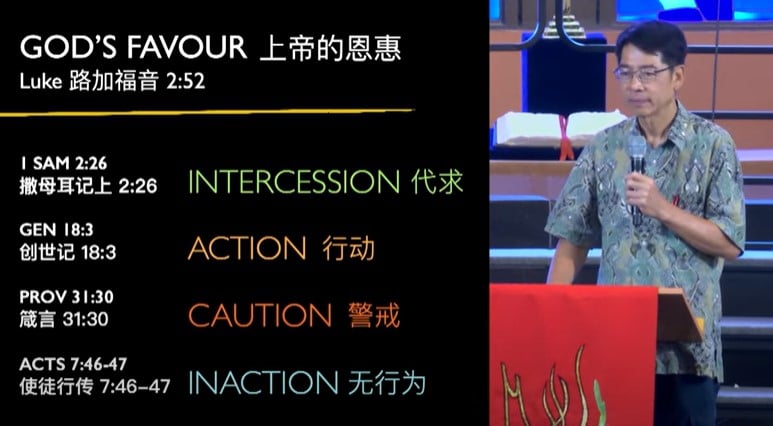
This pattern of discipleship requires an “And then we go again” ethos. Screengrab from Paya Lebar Methodist Church sermon library.
1. Intercession (1 Samuel 2:26)
Citing how Hannah’s desperate prayers arose out of her barrenness, Lai Yong expounded: “All service begins and is grounded in prayer.
“God’s favour does not mean a bed of roses.”
“When we talk about serving others, it is because we have a certain barrenness in us and around us.
“It’s a sense that without God, it is incomplete.”
Calling for individual, corporate and national intercession “because God’s favour does not mean a bed of roses”, he gave the illustration of how ice cream sticks cannot be frozen naked.
These are cut from cheap wood that would warp and spoil, and are rendered stable for freezing temperatures only by the ice cream around them.

Inferior on its own, ice cream sticks warp and spoil if frozen naked. Screengrab from Paya Lebar Methodist Church sermon library.
Similarly, to “make you a servant, God wraps you around with His grace. Then you will serve your function”.
Truth: “This is God’s favour, that we feel an emptiness that leads us Godward.”
2. Action (Genesis 18:3)
Abraham, the rich man, went out of his comfort zone to humbly ask favour of the strangers, Lai Yong noted, “as if to say, ‘I am with you. Please rest. Wash your feet. I (will) bring you some food, that it may refresh your hearts.’”
“One of the things we have to repent of is this: I think we have stopped loving foreigners.”
The local parallel drawn was raw in its contrition: “The Lord has brought many nationalities into our country. One of the things we have to repent of is this: I think we have stopped loving foreigners.”
Truth: “God says, Go out and ask the same question, pray the same prayer, ‘If I have found favour in your sight, let me serve you.’ ”
3. Caution (Proverbs 31:30)
Turning Proverbs 31 on its head, Lai Yong offered the interpretation that the passage was not about the “noble superwoman”, whose witness would be all about works, but was “godly instruction written to the men, in a time when the women had no social status, to be a servant such that women can achieve mobility”.
“Then it’s a Gospel of grace.”
In making application to local context, he observed: “We mix up two Chinese words: 成功 (success) and 成长 (growth). We want success but truly God wants us to grow.
“When we grow there is usually success. But when we are successful, (there is) not necessarily growth. The deeper question is: Are we growing?”
Truth: “Don’t make success our benchmark. Our benchmark is always servanthood.”
4. Inaction (Acts 7:46-47)
David found favour in God’s sight (Acts 7:46) and yet it was not he but his son Solomon who built the tabernacle which, when completed, was shrouded in a cloud of God’s glory (1 Kings 8:10-11).
“Everyone was silenced,” Lai Yong reminded his audience of what is most important. “This is especially important for busy working mums, even busier homemakers, and busy working people.”
Truth: “When we serve God wholeheartedly, the best result is when God comes and His presence silences all of us.”
A call to action
“So, be prayerful. Be ready. Be careful. Be still. And then we go again,” advised Lai Yong.
“We pray across the generations that we will have deep roots. And we serve people whom the Lord brings into our midst. And when God gives you the grace, launch out into the region.
“Don’t make success our benchmark. Our benchmark is always servanthood.”
“We do our part. God arranges the rest.
“How do we know? Look at the cross. Jesus hung on the cross so that you and I – sinners – can have a taste of eternal joy.
“That’s where we are. We live, grow and serve because of God’s favour. Whatever situations we are in, we learn to smile a little because God’s love is in us.”
Hope is such that it springs eternal, yes. But where this message left me was where it began: “It may not last, you know.”
The words echoed as if bouncing against the walls of a disingenuous zone unnervingly called “comfort”.
And fittingly so. Even without the change of modal verb, the warning was clear: It will not last.
“We hope it will last, that we have visa-free travel, but don’t take it for granted.”
RELATED STORIES:
We are an independent, non-profit organisation that relies on the generosity of our readers, such as yourself, to continue serving the kingdom. Every dollar donated goes directly back into our editorial coverage.
Would you consider partnering with us in our kingdom work by supporting us financially, either as a one-off donation, or a recurring pledge?
Support Salt&Light